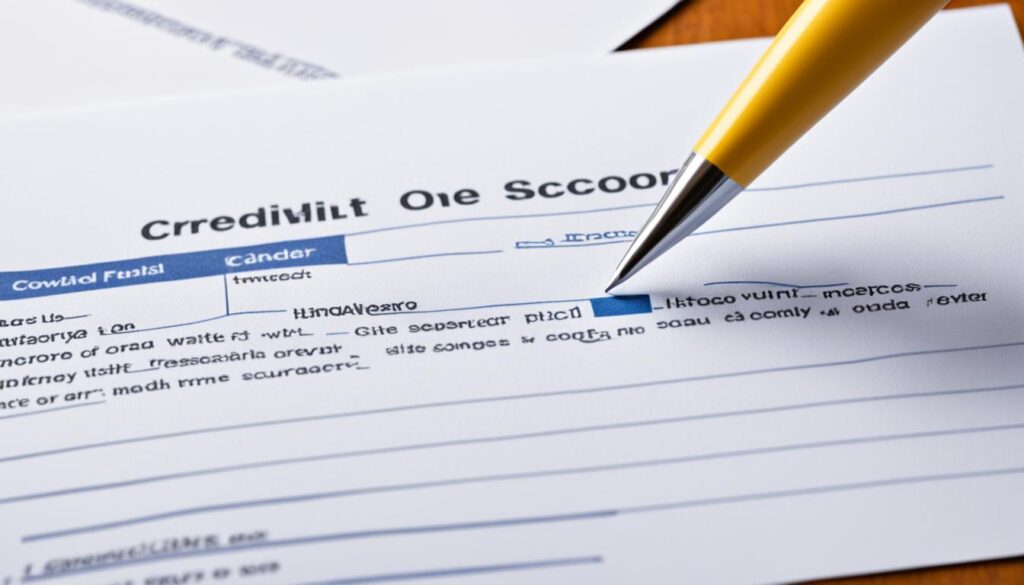Poor credit history can make for a difficult future, as it can deny you access to loans, credit cards, and other forms of credit. Sometimes potential employers will also review your credit history before hiring. Fortunately, there are effective credit repair tactics you can use to boost your score and take control of your financial future. This article will explore practical strategies, from disputing errors to managing debt, to help you improve your credit.
Key Takeaways
- Understand the importance of a good credit score and how it impacts your financial life.
- Learn how to obtain and review your credit reports to identify and dispute any inaccuracies.
- Explore strategies to improve your credit utilization rate and payment history.
- Discover the benefits of credit limit increases and building new credit responsibly.
- Avoid harmful tactics like piggybacking and file segregation that can further damage your credit.
Understanding Credit Repair
Credit repair is the process of improving your credit score by addressing negative items on your credit report, such as late payments, collections, and errors. Your credit score is determined by an algorithm that analyzes the information in your credit report, so addressing these issues is crucial for boosting your score.
What is Credit Repair?
Credit repair involves identifying and resolving any inaccurate, misleading, or unsubstantiated information in your credit report. This can include disputing errors, negotiating with creditors, and developing strategies to improve your credit utilization ratio, payment history, and credit mix.
The Importance of a Good Credit Score
A good credit score, typically in the range of 700 or higher, can open doors to better interest rates, more favorable loan terms, and even job opportunities. This makes it essential to understand and address any credit issues you may have, as a poor FICO scoring model can significantly impact your financial well-being.
| Credit Score Range | Interpretation |
|---|---|
| 800-850 | Excellent credit |
| 740-799 | Good credit |
| 670-739 | Fair credit |
| 580-669 | Poor credit |
| 500-579 | Very poor credit |
By understanding the basics of credit repair and the importance of a good credit score, you can take the necessary steps to improve your financial standing and unlock new opportunities.
Review Your Credit Reports
The first step in your credit repair journey is to review your credit reports from the three major Experian, Equifax, and TransUnion credit bureaus. Under the Fair Credit Reporting Act, you are entitled to a free credit report from each bureau every year, and due to the COVID-19 pandemic, you can now access a free copy of your report weekly until April 2022.
Carefully examine your credit reports for any errors, late payments, maxed-out accounts, or other negative items that may be dragging down your credit score. Documenting these issues will be crucial as you work to address them and improve your overall creditworthiness.
Obtaining Your Free Credit Reports
You can request your free annual credit reports from AnnualCreditReport.com, the only authorized source under the Fair Credit Reporting Act. This website allows you to access your credit reports from all three major credit bureaus at once, making it a convenient one-stop-shop for reviewing your credit history.
Identifying Negative Items
As you review your credit reports, keep an eye out for any errors or negative items that could be dragging down your score. These may include:
- Late or missed payments
- Maxed-out credit cards
- Collections accounts
- Public records, such as bankruptcies or foreclosures
Documenting these issues will be crucial as you work to dispute any inaccuracies and address the underlying problems that are affecting your credit.
Dispute Inaccurate Information
Maintaining an accurate credit report is crucial for a healthy financial future. If you come across any inaccurate or negative items on your credit report, you have the right to dispute them with the credit bureaus under the Fair Credit Reporting Act (FCRA). This federal law provides you with the legal means to contest any false information, and the bureaus are required to investigate and remove any items they cannot verify as accurate.
There are two main ways to file a credit report dispute: online or by paper mail. While the online dispute process is convenient, it’s recommended to use the paper mail option to create a clear paper trail of your dispute. This ensures you have a documented record of your communication with the credit bureaus.
- Gather all the necessary information, including the specific item you’re disputing and any supporting documentation.
- Draft a detailed letter explaining the inaccuracies and your reasons for disputing the item.
- Send the dispute letter via certified mail to the appropriate credit bureau.
- Monitor your credit report for the resolution of the dispute and the removal of the inaccurate information.
Remember, the credit bureaus are required to investigate your dispute and respond within 30 days. If they are unable to verify the accuracy of the item, they must remove it from your credit report. By taking the time to credit report disputes, you can improve your credit score and protect your financial well-being.
Disputing inaccurate information on your credit report is one of the most effective ways to improve your credit score and protect your financial future.
Write Goodwill Letters
When dealing with accurate negative information on your credit report, such as a late payment or a charge-off, you can try a credit repair tactic known as a goodwill letter. This approach involves directly appealing to the creditor to remove the negative item as a gesture of goodwill.
The key to crafting an effective goodwill letter is to provide a compelling explanation for the accurate negative information and demonstrate a consistent history of on-time payments since the incident. By highlighting your payment history and overall creditworthiness, you can make a strong case for the creditor to remove the accurate negative information from your credit report as an act of goodwill.
Crafting an Effective Goodwill Letter
To increase your chances of success with a goodwill letter, consider the following tips:
- Explain the reason for the accurate negative information, such as a temporary financial hardship or a one-time oversight.
- Emphasize your payment history and demonstrate a track record of responsible credit management since the incident.
- Express your commitment to maintaining a good credit score and your appreciation for the creditor’s goodwill in considering your request.
- Politely request that the creditor remove the accurate negative information as a gesture of goodwill.
By crafting a well-written and persuasive goodwill letter, you can increase your chances of having the creditor appeals the accurate negative information on your credit report, ultimately improving your overall credit score.

Keep Accounts Open
When working to improve your credit score, it may be tempting to close credit card accounts. However, this approach can often do more harm than good. Leaving your accounts open, even if they have a zero balance, can actually benefit your credit profile in several ways.
One crucial factor in your credit score is your credit utilization ratio – the amount of available credit you are using compared to your total credit limit. A lower credit utilization ratio is better for your score. By keeping accounts open, even unused ones, you can maintain a lower utilization ratio, which can have a positive impact on your overall credit rating.
Additionally, the age of your credit accounts is another important element in calculating your credit score. The longer your credit history, the better. Closing older accounts can reduce the average age of your credit, potentially leading to a lower score. Maintaining these long-standing accounts, even if they’re not actively used, can help preserve the age of your credit history.
Of course, it’s essential to be cautious when keeping accounts open. You’ll need to resist the temptation to use the available credit and accrue additional debt, as that could negate the benefits of keeping the accounts open. Responsible credit card management is key to maximizing the positive impact of maintaining a diverse, long-standing credit portfolio.
| Benefit | Explanation |
|---|---|
| Lower credit utilization ratio | Keeping accounts open, even with a zero balance, can help maintain a lower credit utilization ratio, which is important for your credit score. |
| Increased account age | Maintaining older accounts can help preserve the average age of your credit history, which is a favorable factor in credit scoring models. |
By understanding the importance of keeping accounts open and practicing responsible credit card management, you can take a significant step towards improving your credit score and overall financial well-being.
Ask for Credit Limit Increases
One effective strategy to improve your credit is to request credit limit increases from your existing creditors. By having more available credit, you can lower your credit utilization ratio, which is a significant factor in your credit score. However, it’s crucial to practice responsible credit management – maintaining low balances relative to your limits to maximize the benefits of credit limit increases.
When you request a credit limit increase, your creditor will typically perform a soft credit inquiry, which won’t negatively impact your credit score. If approved, the higher credit limit can immediately improve your credit utilization ratio, potentially leading to a boost in your overall credit score.
To request a credit limit increase, consider the following steps:
- Review your current credit limit and credit utilization ratio to determine how much of an increase would be most beneficial.
- Contact your credit card issuer, either by phone, online, or through their mobile app, and request a credit limit increase.
- Be prepared to explain why you deserve the increase, such as having a history of on-time payments or an increase in your income.
- If the issuer denies your request, ask if they can reconsider or if there’s any way to qualify for a higher limit in the future.
Remember, responsible credit management is key when it comes to maximizing the benefits of credit limit increases. Avoid the temptation to increase your spending to match the higher limits, as that could ultimately harm your credit utilization ratio and your overall credit score.
| Credit Utilization Ratio Before | Credit Limit Increase | Credit Utilization Ratio After |
|---|---|---|
| 80% | $5,000 | 50% |
| 60% | $10,000 | 30% |
| 40% | $15,000 | 20% |
The table above illustrates how a credit limit increase can positively impact your credit utilization ratio, ultimately leading to an improvement in your overall credit score.

“Responsible credit management, where you maintain low balances relative to your limits, is key to maximizing the benefits of credit limit increases.”
Make On-Time Payments
Improving your credit score is no easy feat, but one of the most effective strategies is to consistently make on-time payments. Payment history is the single biggest factor influencing your credit score, so building a reliable track record of timely payments can have a significant positive impact.
If you’re struggling to manage your debt and stay on top of your payments, consider seeking the assistance of a credit counseling service. These professionals can help you create a realistic budget and develop a debt management plan to get your finances back on track. By working with a credit counselor, you can learn effective budgeting techniques and explore options for consolidating or negotiating your debts, ultimately enabling you to make on-time payments and improve your credit history.
Budgeting and Credit Counseling
Effective budgeting is essential for maintaining on-time payments and improving your overall credit health. By carefully tracking your income, expenses, and debt obligations, you can identify areas where you can cut back and allocate more funds towards timely bill payments. Credit counseling services can provide valuable guidance in creating a personalized budgeting strategy that works for your unique financial situation.
- Develop a detailed monthly budget to track your income and expenses
- Prioritize making on-time payments for all your credit accounts
- Explore debt management options, such as consolidation or negotiation, with the help of a credit counselor
- Implement budgeting techniques to ensure you have the funds available to make payments on time
By combining on-time payments with effective budgeting and credit counseling, you can take significant strides towards improving your credit score and building a stronger financial foundation.
“Consistent on-time payments are the foundation of a healthy credit score. With the right budgeting strategies and support from credit counseling services, you can make on-time payments a habit and see your credit improve over time.”
Strategies to Avoid
While there are legitimate ways to improve your credit score, it’s crucial to steer clear of illegal credit repair tactics that can do more harm than good. Two such strategies to avoid are piggybacking and file segregation.
Piggybacking: A Risky Approach
Piggybacking, the practice of being added as an authorized user to someone else’s credit account, may seem like a quick fix to boost your credit score. However, this tactic can be risky and may not even provide the desired results. In some cases, it can even be considered a form of identity theft, leading to serious legal consequences.
File Segregation: An Illegal Tactic
Another strategy to avoid is file segregation, which involves creating a new Employer Identification Number (EIN) to apply for credit and essentially hide your poor credit history. This is an illegal credit repair tactic that can land you in serious legal trouble, including potential identity theft charges.
Steer clear of these and any other tactics that seem too good to be true, as they are likely illegitimate and could further damage your credit. Instead, focus on building your credit responsibly through legal means, such as disputing inaccuracies, making on-time payments, and increasing your credit limits.

Credit Repair Tactics for Improving Score
Throughout this article, we’ve explored a variety of effective, legal credit repair tactics that you can use to improve your credit score. From disputing inaccurate information on your credit reports to negotiating with creditors through goodwill letters, these strategies can help you take control of your financial future.
Remember, while professional credit repair services may seem appealing, the DIY credit repair approach is often more cost-effective and can be just as successful if you’re willing to put in the time and effort. By consistently implementing these credit repair tactics, you’ll be well on your way to a stronger credit profile.
Here are some key credit repair tactics to consider:
- Review and dispute inaccuracies on your credit reports
- Write effective goodwill letters to negotiate with creditors
- Keep your existing accounts open to maintain a longer credit history
- Request credit limit increases to improve your credit utilization ratio
- Prioritize making on-time payments and seek credit counseling if needed
Remember, legal credit repair is a process that takes time and dedication, but the rewards of a higher credit score can be life-changing. Stay persistent, and you’ll be well on your way to financial success.
“The key to effective credit repair is consistency and patience. With the right tactics, you can rebuild your credit and unlock new financial opportunities.”
| Credit Repair Tactic | Potential Impact on Credit Score |
|---|---|
| Dispute Inaccuracies | Significant positive impact |
| Goodwill Letters | Moderate positive impact |
| Keep Accounts Open | Moderate positive impact |
| Credit Limit Increases | Moderate positive impact |
| On-Time Payments | Significant positive impact |
Monitor Your Credit Reports
Maintaining good credit is an ongoing process, and regularly monitoring your credit reports is crucial for ensuring that your hard-earned progress is accurately reflected. By closely monitoring your credit reports from the three major bureaus – Experian, Equifax, and TransUnion – you can promptly identify and address any credit report errors or potential signs of identity theft or fraud.
Frequent credit report monitoring allows you to stay vigilant and take immediate action to protect your financial well-being. Catching issues early on can save you from the hassle and consequences of unresolved credit report errors or the devastating impact of identity theft.
- Review your credit reports from all three major bureaus at least once a year, or more frequently if you’ve recently made significant credit-related improvements.
- Carefully scrutinize your reports for any inaccuracies, such as incorrect account information, incorrect payment histories, or unauthorized accounts.
- If you notice any discrepancies, promptly initiate a dispute with the appropriate credit bureau to have the errors corrected.
- Stay alert for any signs of identity theft, such as unfamiliar accounts or suspicious inquiries, and take immediate action to address them.
By making credit report monitoring a regular habit, you’ll be able to maintain the progress you’ve made in strengthening your credit and safeguard yourself from the potential consequences of credit report errors and identity theft.
“Regular monitoring of your credit reports is the best way to catch and address any issues that could negatively impact your credit score.”

Build New Credit Responsibly
Once you’ve made progress in repairing your credit, the next step is to start building new credit responsibly. This can involve applying for new credit cards or loans, but it’s important to do so cautiously and avoid incurring too much new debt.
Focus on keeping your credit utilization low, making all payments on time, and diversifying your credit mix to continue improving your credit score over the long term. By building new credit responsibly, you can further boost your payment history and demonstrate to lenders that you’re a trustworthy borrower.
- Apply for new credit cards or loans, but do so cautiously.
- Maintain a low credit utilization ratio by keeping your balances low.
- Make all payments on time to strengthen your payment history.
- Diversify your credit mix by having different types of accounts, such as credit cards, installment loans, and mortgages.
| Metric | Importance for Credit Score |
|---|---|
| New credit | 10% of your credit score |
| Credit utilization | 30% of your credit score |
| Payment history | 35% of your credit score |
| Credit mix | 10% of your credit score |
Remember, building new credit responsibly takes time and patience, but it’s a crucial step in improving your overall credit profile and financial health.
“Responsible credit building is a marathon, not a sprint. Slow and steady progress will ultimately lead to a stronger credit profile.”
Conclusion
Repairing your credit takes time and effort, but the rewards can be significant. By implementing the strategies outlined in this article, such as disputing inaccuracies, negotiating with creditors, and building new credit responsibly, you can boost your credit score and open the door to a more financially secure future. Remember to stay vigilant, monitor your credit reports regularly, and continue to make smart financial decisions.
With dedication and perseverance, you can take control of your credit repair and achieve your financial health goals. By staying focused and persistent, you can unlock new opportunities and pave the way for a brighter financial future.
The journey to improving your credit may not be easy, but the long-term benefits are well worth the effort. Embrace the strategies outlined in this article, and embark on a path towards financial empowerment and stability.
FAQ
What is credit repair?
Why is a good credit score important?
How can I obtain my free credit reports?
What should I do if I find inaccuracies on my credit report?
How can I improve my credit score through goodwill letters?
Should I close my credit accounts to improve my credit?
How can I request credit limit increases?
What is the most effective way to repair my credit?
What credit repair tactics should I avoid?
How do I monitor my credit reports to maintain progress?
How can I build new credit responsibly?
Source Links
- Illegal Credit Repair Tactics – https://anytimeestimate.com/credit/illegal-credit-repair-tactic/
- DIY Credit Repair: Strategies to Try and Tactics to Avoid – NFCC – National Foundation for Credit Counseling – https://www.nfcc.org/blog/diy-credit-repair-strategies-to-try-and-tactics-to-avoid/
- 7 effective DIY credit repair tips – https://www.creditrepair.com/blog/credit-repair/diy-credit-repair/

